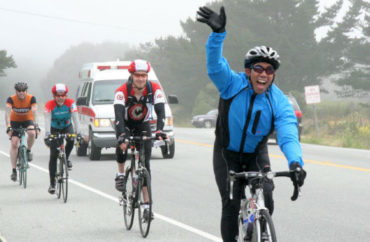
A rather interesting workshop is coming to the University of California-Davis this November, one involving “mobility justice” which examines the intersections of so-called “bike equity” and “sustainable transportation futures.”
Sponsored by the campus Feminist Research Institute, the two-day event will include a “deep discussion” regarding the “complexity of equity” associated with making bikes and establishing new “mobilities,” but also will consider power relationships and racism.
Unsurprisingly, the concept of “mobility justice” comes from the critical studies field, as well as from “a collective of Black, Indigenous, and People of Color (BIPOC) working in bicycling and sustainable transportation”:
Mobility justice examines how the racialized histories of cities and transportation systems limit the mobilities of certain communities in uneven ways. Racial justice scholarship seeks to account for how histories of colonialism and ongoing structures of white supremacy have produced systems of inequality for communities of color. It also examines alternative models that undo harmful practices and foster healing.
Those encouraged to participate are “emerging scholars” who have researched race and inequality and how they intertwine with bicycling and other modes of sustainable transportation.
Featured invitees include keynote speaker Mimi Sheller, a critical mobilities scholar and author of the book “Mobility Justice: The Politics of Movement in an Age of Extremes”; UC Davis Feminist Research Center Associate Director Sarah Rebolloso McCullough, currently working on a project about “the role of privilege and affect in the emergence of mountain biking”; and Antioch University Los Angeles’s Adonia Lugo, co-author of the paper “Making Bicycling Equitable: Lessons from Sociocultural Research.”
The seminar will address the following questions:
–What questions do mobility justice and racial justice frameworks raise for current frameworks within bike equity research?
–How can questions of equity and justice be made central to research, policy & practices on smart/connected cities, autonomous vehicles, and other emergent new mobility systems?
–How can we adopt a more intersectional approach that takes into account multiple vectors of oppression within their historical and situational context?
–How do we account for and challenge hierarchies of expertise that have historically disempowered BIPOC communities within the development and life of transportation systems?
–How do we produce, use, and analyze data that is humanizing and better accounts for the complexity and diversity of human experience?
–How do we ensure that the ways we collect and use data contribute to greater mobility, particularly for those whose mobility is historically and currently constricted?
–What kinds of research questions fundamentally challenge colonial and patriarchal systems of exploitation and harm?
“Addressing Cycles of Inequality” runs from November 1 -2.
MORE: Univ. researchers: Word ‘cyclist’ endangers people who ride bikes
MORE: Univ. gives $400 bike vouchers to those who pledge not to drive to school
IMAGE: Travis Wise / Flickr.com




Please join the conversation about our stories on Facebook, Twitter, Instagram, Reddit, MeWe, Rumble, Gab, Minds and Gettr.